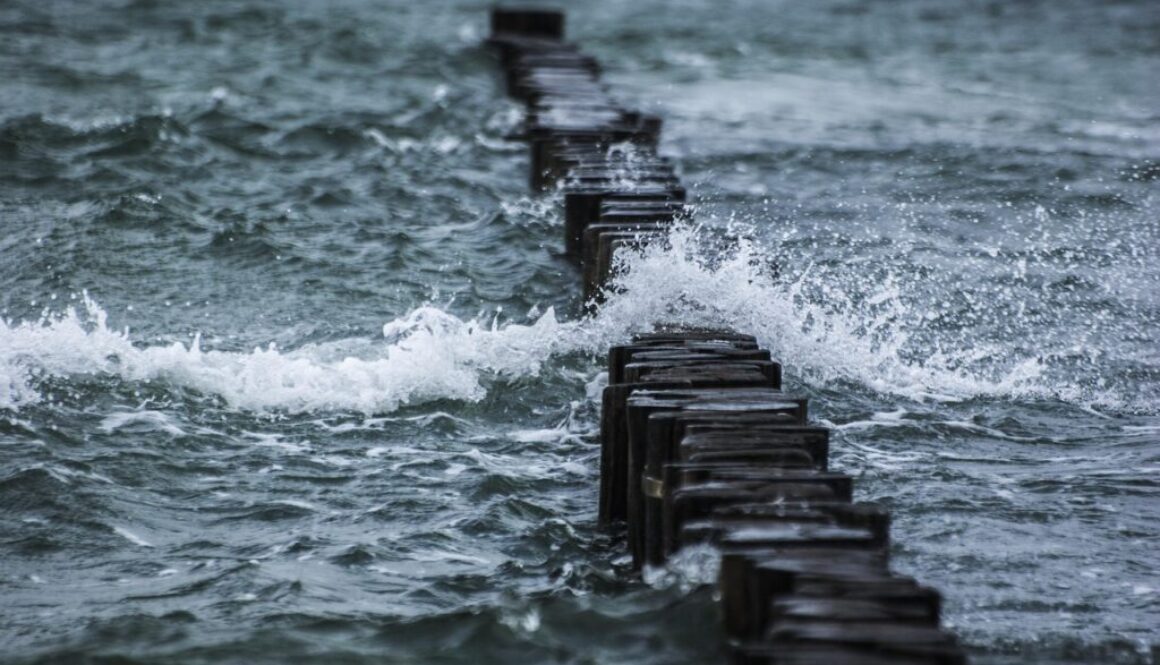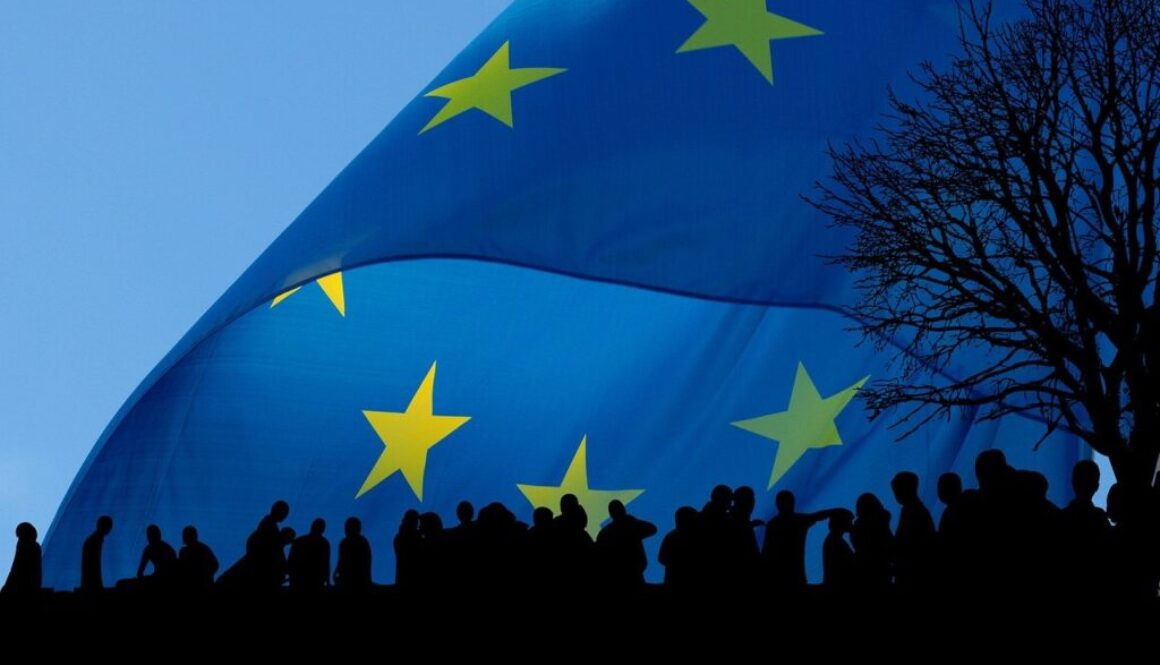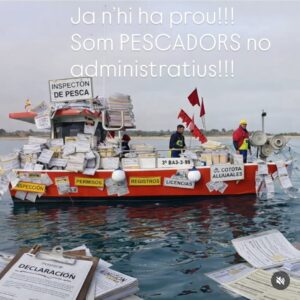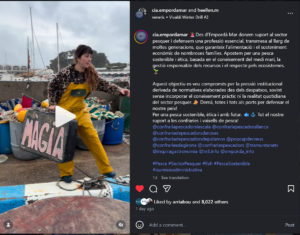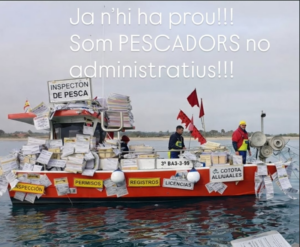¿Qué hay en un nombre? Cuanto más cambian las cosas, más permanecen igual.
Por Brian O'Riordan, asesor político de LIFE
¿Qué hay detrás de un nombre? En el recién anunciado presupuesto de la UE para el próximo periodo -el Marco Financiero Plurianual (MFP) para el periodo 2028-2034-, la financiación de la pesca con cargo al FEMP ha quedado subsumida en el Fondo de Asociación Nacional y Regional (FPNR), dotado con la asombrosa cantidad de 865 000 millones de euros. Dentro del NRPF, 2.000 millones de euros han sido “reservado (como mínimo) para la pesca”, afirma la Presidenta de la Comisión, von der Leyen. Además de los 2 000 millones, los intereses pesqueros podrán solicitar ayudas sectoriales (incluidas las destinadas a modernización, descarbonización, renovación de la flota, comercialización del pescado y regeneración pesquera) al amparo del NRPF.
Cuanto más cambian las cosas, más permanecen igual, y aún no está nada claro cómo este enorme reajuste podría ayudar a la pesca artesanal (PPC). En este artículo, echamos un vistazo preliminar a estos nuevos acuerdos y a lo que hay que hacer para que marquen la diferencia necesaria para sacar a la pesca artesanal del abismo y apoyar al sector en el futuro para que pueda desarrollar todo su potencial en la lucha por recuperar los mares en declive de Europa.
Como en el caso de la Política Pesquera Común, también en el de la financiación de la pesca: la pesca artesanal es una flota olvidada, una política al margen, y lo ha sido durante las últimas 4 décadas. ¿Cambiarán el statu quo las nuevas políticas en ciernes: la Ley de Océanos y los Planes Nacionales y Regionales de Asociación (PNAR) para el apoyo sectorial? Tanto el Pacto por los Océanos (precursor de la Ocean Act) como la propuesta de la CE de apoyo sectorial para el próximo periodo consideran prioritaria la pesca artesanal. Esto es de agradecer.
Para LIFE, devolver la pesca artesanal al centro de las políticas pesqueras requiere hacer que la pesca sea justa a través de un enfoque diferenciado. Este enfoque debe tener en cuenta las características especiales y diferentes de la flota artesanal, que la distinguen social, económica y medioambientalmente, y que podrían convertirla en un factor de cambio para los mares conflictivos de Europa. Para lograrlo, LIFE pide a la Comisión y a los responsables europeos que “Hacer Feria de la Pesca”. En este empeño, el apoyo sectorial es clave para que la pesca sea justa, junto con un acceso justo a los recursos y un acceso justo a los mercados.
LIFE sostiene que el acceso justo a las ayudas sectoriales para todos los segmentos de la flota debe basarse en consideraciones económicas, sociales y medioambientales (es decir, dar prioridad a quienes pescan de la forma más sostenible y aportan mayores beneficios a la sociedad). En pocas palabras, las subvenciones al combustible y las ayudas financieras deben desviarse de los buques altamente contaminantes y de gran impacto hacia iniciativas que apoyen una pesca respetuosa con el medio ambiente y beneficiosa desde el punto de vista socioeconómico.
Esperamos con impaciencia que se aclare cómo funcionarán los nuevos mecanismos de financiación incluidos en el nuevo presupuesto para el próximo periodo de 7 años, 2028-34. En particular, ¿qué mecanismos especiales y salvaguardias se incluirán para garantizar que el próximo presupuesto de la UE funcione para la pesca artesanal, donde cuestiones como la renovación generacional, la descarbonización de la flota y la viabilidad son cada vez más acuciantes?
El nuevo presupuesto de la UE: el Marco Financiero Plurianual (MFP): El EMFAF desaparece en el Fondo de Asociación Nacional y Regional (NRPF)
El llamado Marco Financiero Plurianual (MFP, el presupuesto de la UE) ha sido objeto de una profunda remodelación por parte de la Comisión Europea, que combina muchos de los mecanismos financieros existentes -incluidos el Fondo Europeo Marítimo y de la Pesca, el Fondo Europeo Agrícola de Garantía y el Fondo de Desarrollo Rural-, con la creación de un Fondo Europeo de Desarrollo Rural. en el Fondo Europeo de Prosperidad y Seguridad Sostenibles en los Ámbitos Económico, Territorial, Social, Rural y Marítimo.
En su declaración del 16 de julio, la Presidenta de la Comisión von der Leyen esbozó 5 áreas clave del nuevo MFP: en primer lugar, “invertir en las personas, los Estados miembros y las regiones", Planes Nacionales y Regionales de Asociación (PNR) por valor de 865 000 millones de euros, será el bases para la inversión y la reforma. En su centro siguen estando la cohesión y la agricultura”. Von de Leyen declaró que se salvaguardarán 300 000 millones de euros para las ayudas a la renta de los agricultores, y ’sobre la pesca, 2.000 millones de euros están reservados como mínimo”, dijo.
Por su parte, el Comisario de Pesca y Océanos, Costas Kadis, declaró que: “los productores pesqueros y acuícolas seguirán siendo el alma de las comunidades y economías costeras europeas”.”
Asimismo, aseguró que las políticas relacionadas con la pesca y los océanos estarían bien reflejadas en los tres pilares del nuevo MFP: el Fondo de Asociación Nacional y Regional (FNPR, dotado con 453 000 millones de euros), el Fondo Europeo de Competitividad (409 000 millones de euros para apoyar las inversiones en la economía azul, incluida la pesca), Horizonte Europa (175 000 millones de euros para apoyar la observación de los océanos, la investigación y la innovación) y Europa Global (200 000 millones de euros para apoyar la diplomacia oceánica y la lucha contra la pesca ilegal, no declarada y no reglamentada).
Además de los 2 000 millones de euros de “por su apoyo a la PPC”, Kadis mencionó que se dispondría de un instrumento de la UE por valor de 63.000 millones para financiar la recopilación de datos, el control de la pesca y las soluciones digitales.
Quizá merezca la pena reflexionar sobre el hecho de que, comparados con los 6.000 millones del Fondo Europeo Marítimo, de Pesca y Acuicultura (FEMP) para el anterior periodo de 7 años, 2.000 millones suponen un importante ajuste de cinturón. La Presidenta de la Comisión Pech del Parlamento Europeo, Carmen Crespo Díaz, expresó su preocupación por la pérdida de identidad e importancia de la PPC, afirmando que “la pesca es una política común de la UE. No debe perder su identidad. Sin un fondo específico, no hay política específica”.
Sin embargo, Kadis insistió en que “los pescadores y acuicultores de la UE pueden (también) acceder al gran bote de 453.000 millones de euros, a través de los planes nacionales (los PNR) presentados por los Estados miembros de la UE”. Obviamente, esto depende de las prioridades nacionales y regionales y de las demandas de los sectores competidores.
Más información en la propuesta publicada por la Comisión Europea de Reglamento de apoyo a la Política Pesquera Común (PPC), al Pacto por los Océanos y a la política marítima y de acuicultura de la UE para el próximo período de financiación de 7 años
La propuesta ofrece una larga lista de los ámbitos que abarcará el NRPF para los sectores marítimos mencionados, a saber:
"la renovación generacional y la transición energética de la pesca, las actividades de acuicultura sostenible y la transformación y comercialización de los productos de la pesca y la acuicultura, la economía azul sostenible en las zonas costeras, insulares y del interior, los conocimientos marinos, la cualificación de las actividades relacionadas con la economía azul, la resistencia de las comunidades costeras y, en particular, de la pesca costera artesanal, el refuerzo de la gobernanza y la observación internacionales de los océanos y el fomento de una gestión segura, limpia y sostenible de los mares y océanos"
Tal vez los pescadores artesanales puedan alegrarse de que, en el considerando 5, la nueva propuesta de NRPF para los sectores marítimos combinados establezca que: el particular necesidades de la pesca costera artesanal, y la contribución a la sostenibilidad medioambiental, económica y social de las operaciones pesqueras, tal como se define en el Reglamento 1380/2013 de la PPC. debe abordarse en los Planes Nacionales y Regionales de Asociación (PNR), tal como se establece en el artículo 22 del [Reglamento PNR]. También que el artículo 3.3 establece que “para las operaciones relacionadas con la pesca costera artesanal, los Estados miembros podrán conceder un máximo del 100 % índice de intensidad de la ayuda."
Sin embargo, se llame como se llame el nuevo instrumento, sea cual sea el índice de intensidad de la ayuda y cualquiera que sea la bonita formulación utilizada, a menos que se tengan en cuenta las especificidades de la pesca a pequeña escala, la financiación seguirá quedándose corta.
Tres cuestiones clave, olvidadas durante mucho tiempo en anteriores presupuestos de la UE, requieren especial atención: a) la falta de voluntad política para apoyar la pesca a pequeña escala y el estrangulamiento del sector por muchos lados; b) la complejidad del proceso de solicitud de fondos y las pesadas cargas burocráticas impuestas; y c) la necesidad de que los proyectos estén terminados antes de que la financiación esté disponible.
A menos que se aborden estas cuestiones y se establezca un sistema de entrega específico para la pesca artesanal con prioridades claras, independientemente del nombre que se dé a las ayudas sectoriales y de las bonitas declaraciones que se hagan, los fondos no llegarán a la flota olvidada de Europa. La iniciativa Semillas Azules, en colaboración con WWF muestra cómo puede funcionar la prefinanciación para aportar soluciones satisfactorias y sostenibles a los proyectos de pesca a pequeña escala. Esta podría ser una línea a seguir en los PNR para la financiación de los SSF.
Modernización de la flota, descarbonización y renovación generacional: más preguntas que respuestas
En anteriores propuestas del FEMP y el FEMP, la Comisión había establecido condiciones para la modernización y renovación de la flota, con disposiciones especiales para la pesca artesanal (a través de los planes de acción nacionales del FSE). Aunque la renovación generacional y la transición energética son las primeras prioridades mencionadas del PNR, no se menciona cómo se va a lograr mediante la financiación de nuevos buques (para los pescadores jóvenes) o la reconversión de buques y la adaptación de nuevos motores y equipos (para la descarbonización).
Una interpretación optimista de esto sería que la Comisión ha llevado la simplificación a su conclusión lógica y ha depositado toda la responsabilidad en los Estados miembros a la hora de decidir qué prioridad debe darse a la renovación de la flota y a la descarbonización (en comparación con, por ejemplo, las prioridades de agricultura y desarrollo rural), y de decidir las condiciones en las que se pueden asignar nuevos fondos del MFP a través de los PNR a la pesca. Esto significaría que el Parlamento y el Consejo ya no tendrían un papel que desempeñar en la revisión de las propuestas, sino que cada Estado miembro sería libre de decidir su propio marco y sus prioridades.
Una visión más pesimista vería esto como una mayor marginación de la pesca, con una asignación de fondos drásticamente reducida, en un contexto de compresión espacial de sectores de la Economía Azul más poderosos económica y políticamente, y con la acuicultura y la aún mal definida “Comida Azul” siendo priorizadas como el futuro de la comida que se producirá del mar.
Por lo tanto, es necesario aclarar qué condiciones generales se aplicarán a escala de la UE, aparte de la necesidad de cumplir las normas de la OMC, y que toda nueva construcción, modernización y transformación de buques deberá respetar los límites nacionales de capacidad.
Todo esto debe situarse en el contexto de un sistema de medición y notificación de la capacidad de la flota que no se ajusta a su finalidad, plagado de declaraciones erróneas y fraudes en la certificación de los motores, con un importante exceso de capacidad no documentado que exacerba la sobrepesca. El sistema actual, basado en GT y kW, debería haberse reformado hace tiempo.
Necesitamos un nuevo sistema adecuado que pueda diferenciar entre la capacidad pesquera que causa sobrepesca y la capacidad necesaria para ofrecer unas condiciones de trabajo dignas. Este sistema también debe permitir que la flota de buques de la UE se modernice e incorpore soluciones técnicas para la descarbonización sin penalizaciones.
El nuevo panorama europeo de las búsquedas en el marco del MFP

¿Alguna pregunta?
La CE acaba de publicar un “Preguntas y respuestas” sobre el nuevo proyecto de presupuesto 2028-2034 para pesca, acuicultura y actividades relacionadas con los océanos.
Explica que el objetivo de la remodelación del MFP para las políticas relacionadas con la pesca, la acuicultura, el mar y los océanos es reducir la fragmentación, ajustar mejor la financiación a las prioridades nacionales y regionales y permitir una reasignación presupuestaria más rápida en respuesta a crisis y acontecimientos excepcionales. Al mismo tiempo, la propuesta pretende conceder más flexibilidad a los Estados miembros para que puedan atender mejor sus necesidades y prioridades.
Destaca que el PNR puede utilizarse para realizar inversiones en zonas rurales y costeras, desarrollo local dirigido por la comunidad (DLCC), estrategias de especialización inteligente y apoyo a la renovación generacional en el sector de la pesca y la acuicultura.
Explica que los PNR pueden asignar recursos a medidas de transición energética, y aclara que: el Fondo de Competitividad está explícitamente diseñado para respaldar la descarbonización y la innovación - por ejemplo, modernización de buques, electrificación de puertos, construcción naval ecológica y blue tech.
Destaca que cualquier ayuda a la flota debe cumplir las normas de la OMC sobre subvenciones a la pesca y los objetivos de la PPC.
¿Por qué la pesca a pequeña escala puede cambiar las reglas del juego?
- Elevada importancia socioeconómica: 70% de la flota de la UE en número, 50% de los puestos de trabajo en el mar, 19% en valor de todas las capturas de la UE; suministro de pescado fresco de alta calidad y captura del día; representación de un inestimable repositorio de conocimientos locales tradicionales y experimentales sobre ecosistemas marinos, oceanografía y meteorología;
- Bajo impacto medioambiental: 5% de las capturas de la UE en volumen, 10% de la capacidad pesquera, medida en GT.
- Producción de alimentos con bajas emisiones de carbono, generación de medios de subsistencia con bajas emisiones de carbono; disminución del uso de combustibles fósiles, 35 litros al día/ 38 euros al día; el consumo de combustibles fósiles de las FLA es una gota en el océano en comparación con otros sectores (como el transporte marítimo).
¿Cuáles son las especificidades de la pesca artesanal que requieren un planteamiento diferenciado?
- La pesca artesanal es un modo de vida tradicional para muchos habitantes de la costa, que están dispuestos a sacrificar el beneficio económico para vivir y trabajar junto al mar y en él, y ejercer la profesión de sus antepasados. Dicha actividad puede ser a tiempo parcial, estacional y combinada con otras actividades, proporcionando ingresos suficientes para salir adelante.
- SSF se basa en microempresas o nanoempresas familiares, La mayoría con un volumen de negocio de 100.000 euros o menos, muchos con empleos estacionales o a tiempo parcial, a menudo dependientes de mano de obra no remunerada o mal pagada para hacer viables los negocios, y con poca capacidad para absorber las crisis económicas;
- Operaciones a pequeña escala, con un solo operador o una pequeña tripulación a bordo, largas horas de trabajo, incurriendo en importantes costes de oportunidad al dedicar tiempo a asistir a reuniones externas, y con escasos excedentes para invertir en la contratación de representantes que actúen en nombre de los pescadores;
- Importante fuente de ingresos y beneficios socioeconómicos en comunidades remotas con pocas alternativas, con importantes vínculos con el turismo. Un puerto animado lleno de pequeñas embarcaciones es un atractivo inestimable para el turismo, sin el cual el turismo decaería.
- Producción de bajo volumen y alto valor, lo que hace a los productores muy vulnerables a las fluctuaciones del mercado y a la competencia de la producción de gran volumen y de los productos importados de bajo coste; y
- La escasa extensión geográfica y las limitadas posibilidades de pesca hacen que las actividades pesqueras sean especialmente vulnerables a la sobrepesca y a la competencia de la pesca a mayor escala, a los efectos del cambio climático, a las especies invasoras (como las algas marinas) y al desplazamiento de los caladeros tradicionales debido a la compresión espacial.

